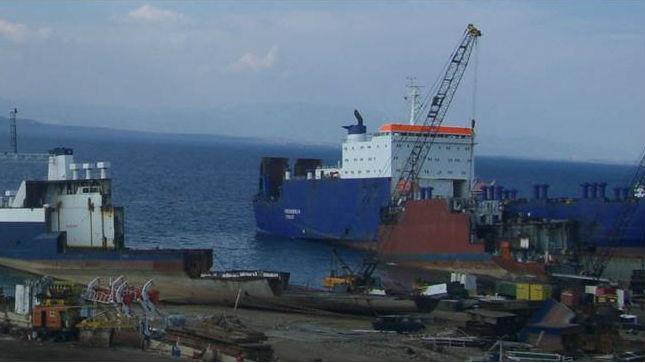
The IMO and Government of the People’s
Republic in Bangladesh have launched the “Safe and Environmentally Sound Ship
Recycling in Bangladesh – Phase I” project, marking a key milestone on the road
to improving safety and environmental standards within the industry.
Ship dismantling on beaching yards has been
strongly associated with environmental pollution, unsafe working conditions,
and it has been particularly controversial in Bangladesh due to the use of
child labor. In 2010 the industry was shut down for almost a year largely over
the use of underage workers.
The “Safe and Environmentally Sound Ship
Recycling in Bangladesh – Phase I” project aims at improving standards and
stability within the country’s ship recycling industry and consists of five
different work packages, including studies on economic and environmental
impacts, the management of hazardous materials and wastes, recommendations on
strengthening the Government’s One-Stop Service, a review and upgrade of
existing training courses, and the development of a detailed project document
for a possible follow-up project to implement the recommendations of phase I.
The project is being overseen by the Marine
Environment Division of IMO in partnership with the Ministry of Industries of
Bangladesh and includes collaborative work with the Secretariat of the Basel,
Rotterdam and Stockholm Conventions, and the Norwegian Agency for Development
Cooperation.
Industry divided
Earlier this month, the Clean Shipping
Network (CSN), a network of 32 multinationals, issued a statement condemning
the breaking of ships on tidal beaches. In the statement, shipping companies
mentioned the NGO Shipbreaking Platform’s list of shipping companies involved
in the practice and asked them to review their policies and practices regarding
the selling and recycling of end-of-life vessels. The shipping companies were
also asked to report on their ship recycling policy in the Clean Shipping Index
questionnaire, a tool used by leading international cargo owners to evaluate
the environmental performance of their providers of sea transports.
Some believe the issue is not as clear cut
as it would seem, as some yards are instigating positive changes in their
practices. Ship recycling yards in India, Pakistan and Bangladesh need to be
part of the global scheme of sound ship recycling and those yards in Alang
which have invested in fully upgrading their facilities to meet the terms of
internationally-agreed rules should be rewarded by winning more business, said
Akihiro Tamura, Director of Shipbuilding Policy at the Japan External Trade
Organisation (Jetro), shortly after returning from a fact finding trip to
Indian recycling yards in Alang earlier this year. The four-day visit was
arranged in association with cash buyer Global Marketing Systems (GMS).
Welcoming the comments from the visit,
Nikos Mikelis, Non-executive Director of GMS, said it was up to the shipping
industry and the regulators to see the improvement in conditions themselves.
“We have already invited legislators from the European Commission, maritime
administrations, IMO, as well as global shipowner representatives to visit the
area and the invitation is still open.
“Separately, the IMO should be invited to
hold a workshop/seminar in India to not only raise awareness of the
improvements which have been made there but to inform and educate other yards
as to what is needed to conform to the terms of the Hong Kong International
Convention for the Safe and Environmentally Sound Recycling of Ships,” he said.
Source:
maritime
executive. 9 April 2015
No comments:
Post a Comment